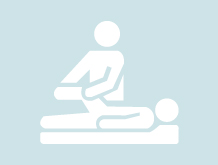
Reading Adult Videofluoroscopies (VFS)
Online Course Overview
From: Mon 19 Feb 2024
To: Mon 22 Apr 2024
Please note that a refund will be issued only on cancellations made 4 weeks prior the course date.
Day One: Introduction to Neurological Disorders - SOLD OUT
Monday 19th February 2024 9am - 4pm.
Aimed at delegates who:
- Routinely work with an adult neurology caseload
- Have a sound understanding of normal adult and elderly swallow physiology on radiological imaging
- Are routinely participating in VFSS clinics and/or referring into VFSS clinics
Learning Outcomes:
- To understand the impact of common neurological deficits on radiologically-evaluated swallowing biomechanics
- To appreciate how VFSS may be utilised within the adult neurological dysphagia pathway
- To understand differences between radiological symptoms (aspiration, penetration, residues) and swallowing biomechanics; and
- To be familiar with scales to quantify changes radiologically-assessed swallowing symptoms and biomechanics
This day will not directly cover:
- Normal and elderly swallowing
- VFSS clinic set-up
- Referrals into VFSS clinic
- VFSS protocols & reporting
- Dysphagia therapy
- Dysphagia management
Day Two: Intermediate Neurological Disorders - SOLD OUT
Monday 22nd April 2024 9am - 4pm.
Aimed at delegates who:
- Have a regular, working input into a VFSS clinic in the neurological caseload
- Have an appreciation of radiologically-assessed swallow presentation in more common neurological disorders (such as stroke and Parkinson’s disease)
- Have a working knowledge and practical application of the aspiration-penetration scale and awareness of clinically utilised residue scales.
Learning Outcomes:
- To utilise more refined radiological analysis in order to understand more nuanced changes in swallowing biomechanics
- To identify and assess the impact of dysphagia strategies and/or therapy techniques radiologically
- Understand use of VFSS to aid neurological differential diagnosis.
This day will not directly cover:
- Normal and elderly swallowing
- Learning outcomes of day one
- VFSS clinic set-up
- VFSS protocols & reporting
- Referrals into VFSS clinic
General content of both days:
- Direct teaching from experienced SLTs
- Opportunities to observe previously-recorded VFSS images from more common & rare neurological populations (acute and progressive)
- Opportunities to visualise and analyse VFSS using pre-determined rating scales
- Large and small group discussions with supported analysis
- Question and answer sessions
Draft Programme: Day One
9.00-9.30am Online check-in/arrival
9.30 – 10.30am Basic anatomy & physiology refresher (including key components of the swallow for radiological analysis)
10.30 – 11.15am Considerations for use of VFSS in neurological disease
11.15am – 11.45am Tea break
11.45am-12.30pm The aspiration-penetration scale (to include short discussion on assessment of sensation, introduction to Rosenbek scale and group rating)
12.30 – 1.30pm Lunch break
1.30pm-2.15pm Residue scales (to include clinical significance of residues, patient awareness, comparison to FEES imaging and group rating)
2.15-3pm VFSS evaluation of more common neurological deficits (dysphagia presentation and core radiological features)
- Cortical CVA
- Brainstem CVA
3-3.30pm Coffee break
3.30-4.15pm VFSS evaluation of more common neurological deficits (dysphagia presentation and core radiological features)
- Parkinson’s Disease
- Motor Neurone Disease
4.15 – 4.30pm Questions & close
Draft Programme: Day Two
9.00-9.30am Online check-in/arrival
9.30 – 10am Key components of the swallow for radiological analysis: refresh and recap (including learning outcomes for the day).
10 – 11.15am Oral containment vs pharyngeal delay: worked examples in neurological disease (to include worked examples and opportunity for group rating/discussion)
11.15am – 11.30am Tea break
11.30am-12.45pm Hyo-laryngeal elevation: refined analysis in neurological disease (to include worked examples and opportunity for group rating/discussion)
12.45 – 1.15pm Lunch
1.15pm-2:30pm Tongue base and pharyngeal wall movement: Less common neurological presentations (examples to include myotonic dystrophy, c-spine surgery, unknown aetiologies)
2:30-2.45pm Coffee break
2:45-4:00pm Dysphagia strategies (radiological assessment of dysphagia strategies to include chin tuck, supraglottic, Mendolsohn manoeuvre and cough)
4.00-4.30pm VFSS diagnostic conundrum
4.30 – 4.45pm Questions & close
Days 1 (Introduction) and 2 (Intermediate) Both
Attendance for both Day 1 and Day 2
Mon 19 Feb 2024 to Mon 22 Apr 2024
PurchaseIndividual Day 1: Introduction
Aimed at delegates who: - Routinely work with an adult neurology caseload - Have a sound understanding of normal adult and elderly swallow physiology on radiological imaging - Are routinely participating in VFSS clinics and/or referring into VFSS clinics
Mon 19 Feb 2024
Purchase- Tutor: Therapy Team
- Contact: Elisa
- Tel:
- Email: uclh.enquiry.therapy.courses@nhs.net
-
Please contact the course admins for any course related queries
Online Course